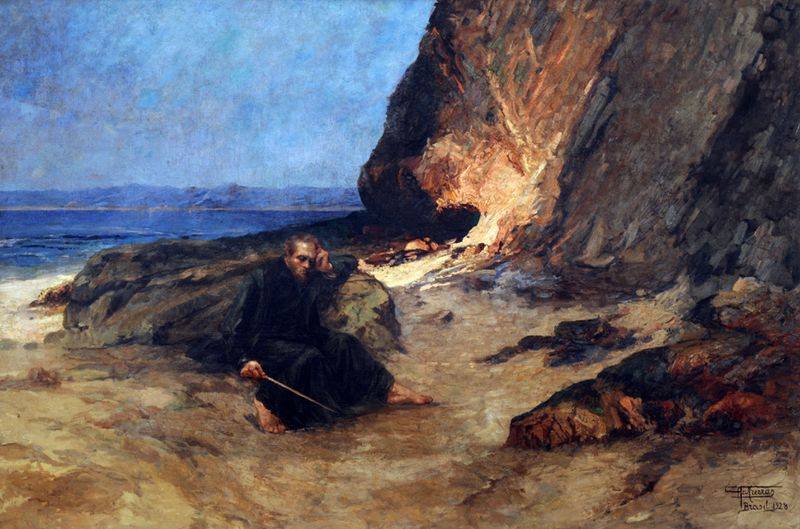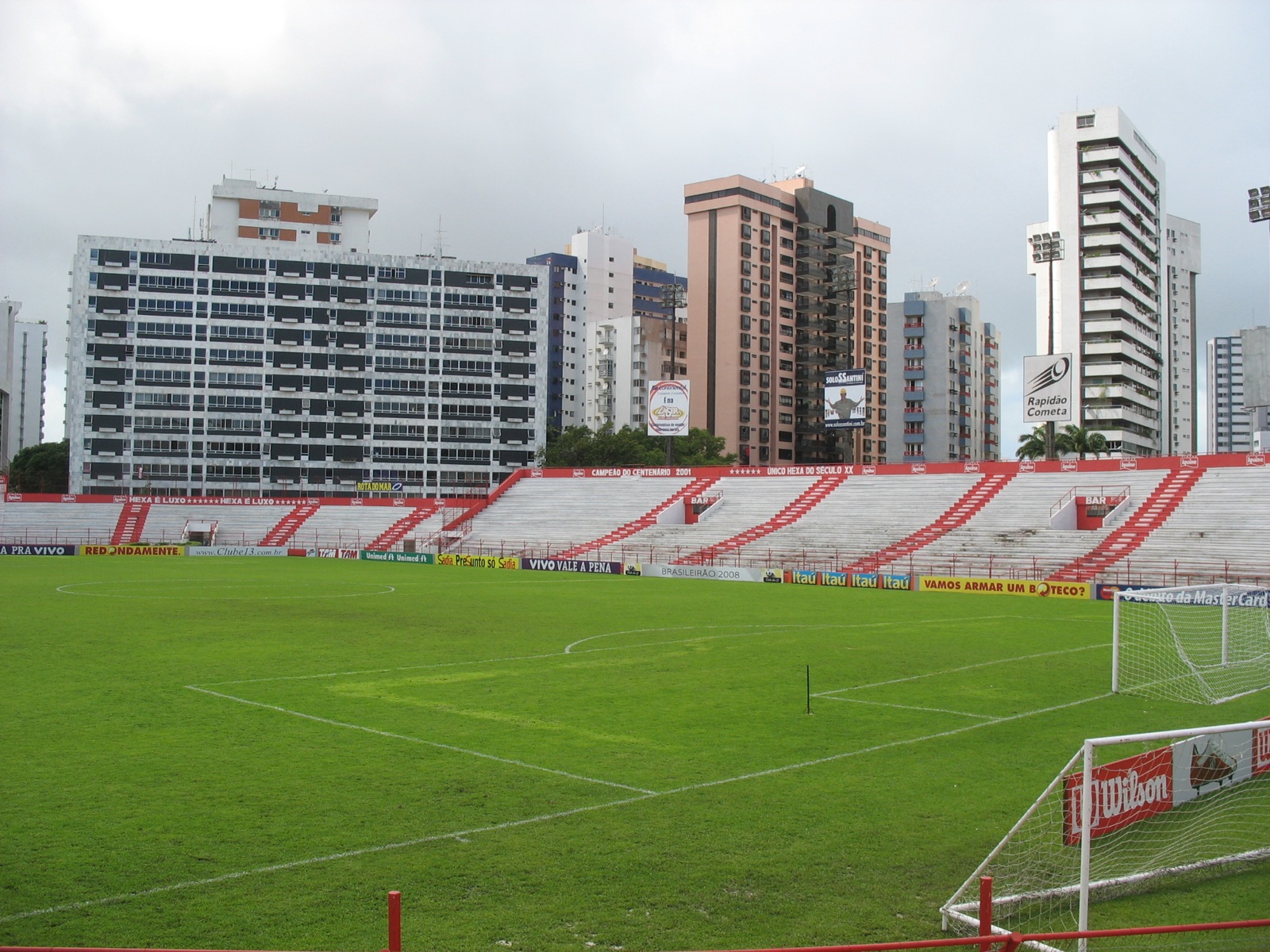|
Capibaribe River
The Capibaribe River () is a river located in Pernambuco state, Brazil, with a length of 240 kilometers. The Capibaribe originates in the Serra do Jacarará, in the municipality of Poção, and flows to the Atlantic Ocean at Recife. Etymology The word Capibaribe derives from the Tupi names ''Caapiuar-y-be'' or ''Capibara-ybe'', meaning Capybara River. Sports Recife's sport team Clube Náutico Capibaribe is named after the Capibaribe River. History The Capibaribe River was a significant geographic determinant factor in the history of Pernambuco Pernambuco () is a state of Brazil, located in the Northeast region of the country. With an estimated population of 9.6 million people as of 2020, making it seventh-most populous state of Brazil and with around 98,148 km², being the 19 ... State and the Northeast of Brazil. It was in the floodplains of the river that the first sugar cane mills were formed, its black clay soil being suitable for the cultivation of agricult ... [...More Info...] [...Related Items...] OR: [Wikipedia] [Google] [Baidu] |
Serra Do Jacarará
Serra (Latin for "saw") may refer to: People * Serra (footballer) (born 1961), Portuguese footballer * Serra (surname) * Serra (given name) Cities, towns, municipalities Brazil *Serra, Espírito Santo, a city in the Greater Vitória area *Amparo do Serra, in Minas Gerais * Araçoiaba da Serra, in São Paulo *Itapecerica da Serra, in São Paulo * Mirante da Serra, in Rondônia *Natividade da Serra, in São Paulo * Pé de Serra, in Bahia * Redenção da Serra, in São Paulo * Rio Grande da Serra, in São Paulo *Santa Maria da Serra, in São Paulo *São Lourenço da Serra, in São Paulo *Serra Azul, in São Paulo * Serra do Navio, in Amapá * Serra do Navio, in Amapá * Serra Negra, in São Paulo *Serra Talhada, in Pernambuco *Taboão da Serra, in São Paulo Italy * La Serra, San Miniato, in Tuscany * Serra (Rocca Santa Maria), in Abruzzo *Serra d'Aiello, in Calabria *Serra de' Conti, in Marche *Serra Pedace, in Calabria *Serra Riccò, in Liguria *Serra San Bruno, in Calabria *Ser ... [...More Info...] [...Related Items...] OR: [Wikipedia] [Google] [Baidu] |
Atlantic Ocean
The Atlantic Ocean is the second-largest of the world's five oceans, with an area of about . It covers approximately 20% of Earth's surface and about 29% of its water surface area. It is known to separate the " Old World" of Africa, Europe and Asia from the "New World" of the Americas in the European perception of the World. The Atlantic Ocean occupies an elongated, S-shaped basin extending longitudinally between Europe and Africa to the east, and North and South America to the west. As one component of the interconnected World Ocean, it is connected in the north to the Arctic Ocean, to the Pacific Ocean in the southwest, the Indian Ocean in the southeast, and the Southern Ocean in the south (other definitions describe the Atlantic as extending southward to Antarctica). The Atlantic Ocean is divided in two parts, by the Equatorial Counter Current, with the North(ern) Atlantic Ocean and the South(ern) Atlantic Ocean split at about 8°N. Scientific explorations of the A ... [...More Info...] [...Related Items...] OR: [Wikipedia] [Google] [Baidu] |
Brazil
Brazil ( pt, Brasil; ), officially the Federative Republic of Brazil (Portuguese: ), is the largest country in both South America and Latin America. At and with over 217 million people, Brazil is the world's fifth-largest country by area and the seventh most populous. Its capital is Brasília, and its most populous city is São Paulo. The federation is composed of the union of the 26 States of Brazil, states and the Federal District (Brazil), Federal District. It is the largest country to have Portuguese language, Portuguese as an List of territorial entities where Portuguese is an official language, official language and the only one in the Americas; one of the most Multiculturalism, multicultural and ethnically diverse nations, due to over a century of mass Immigration to Brazil, immigration from around the world; and the most populous Catholic Church by country, Roman Catholic-majority country. Bounded by the Atlantic Ocean on the east, Brazil has a Coastline of Brazi ... [...More Info...] [...Related Items...] OR: [Wikipedia] [Google] [Baidu] |
Pernambuco
Pernambuco () is a state of Brazil, located in the Northeast region of the country. With an estimated population of 9.6 million people as of 2020, making it seventh-most populous state of Brazil and with around 98,148 km², being the 19th-largest in area among federative units of the country, it is the sixth-most densely populated with around 89 people per km². Its capital and largest city, Recife, is one of the most important economic and urban hubs in the country. Based on 2019 estimates, the Recife Metropolitan Region is seventh-most populous in the country, and the second-largest in northeastern Brazil. In 2015, the state had 4.6% of the national population and produced 2.8% of the national gross domestic product (GDP). The contemporary state inherits its name from the Captaincy of Pernambuco, established in 1534. The region was originally inhabited by Tupi-Guarani-speaking peoples. European colonization began in the 16th century, under mostly Portuguese rule in ... [...More Info...] [...Related Items...] OR: [Wikipedia] [Google] [Baidu] |
Poção
Poção is a city located in the state of Pernambuco, Brazil. Located at 241 km away from Recife, capital of the state of Pernambuco. Has an estimated ( IBGE 2020) population of 11,305 inhabitants. Geography * State - Pernambuco * Region - Agreste Pernambucano * Boundaries - Paraiba state (N); Pesqueira (S and W); Jataúba (E). * Area - 199.74 km2 * Elevation - 1000 m * Hydrography - Capibaribe and Ipojuca rivers * Vegetation - Caatinga Hipoxerófila * Climate - Semi arid * Annual average temperature - 19.5 c * Distance to Recife - 241 km Economy The main economic activities in Poção are based in agribusiness, especially beans, corn; and livestock such as cattle, sheep, goats and poultry Poultry () are domesticated birds kept by humans for their eggs, their meat or their feathers. These birds are most typically members of the superorder Galloanserae (fowl), especially the order Galliformes (which includes chickens, quails, .... Econ ... [...More Info...] [...Related Items...] OR: [Wikipedia] [Google] [Baidu] |
Recife
That it may shine on all ( Matthew 5:15) , image_map = Brazil Pernambuco Recife location map.svg , mapsize = 250px , map_caption = Location in the state of Pernambuco , pushpin_map = Brazil#South America , pushpin_map_caption = , pushpin_relief = yes , coordinates = , subdivision_type = Country , subdivision_name = , subdivision_type1 = Region , subdivision_type2 = State , subdivision_name1 = Northeast , subdivision_name2 = , established_title = Founded , established_date = March 12, 1537 , established_title2 = Incorporated (as village) , established_date2 = 1709 , established_title3 = Incorporated (as city) , established_date3 = 1823 , leader_title = Mayor , leader_name = João Henrique Campos ( PSB) , leader_title1 = Vice Mayor , leader_name1 = Isabella de Roldão ( PT) , area_total_km2 = 218 , ar ... [...More Info...] [...Related Items...] OR: [Wikipedia] [Google] [Baidu] |
Tupi Language
Old Tupi, Ancient Tupi or Classical Tupi (also spelled as Tupí) is an extinct Tupian language which was spoken by the aboriginal Tupi people of Brazil, mostly those who inhabited coastal regions in South and Southeast Brazil. It belongs to the Tupi–Guarani language family, and has a written history spanning the 16th, 17th, and early 18th centuries. In the early colonial period, Tupi was used as a ''lingua franca'' throughout Brazil by Europeans and aboriginal Americans, and had literary usage, but it was later suppressed almost to extinction. Today, only one modern descendant is living, the Nheengatu language. The names Old Tupi or classical Tupi are used for the language in English and by modern scholars (it is referred to as in Portuguese), but native speakers called it variously "the good language", "common language", "human language", in Old Tupi, or, in Portuguese, "general language", "Amazonian general language", "Brazilian language". History Old Tupi was firs ... [...More Info...] [...Related Items...] OR: [Wikipedia] [Google] [Baidu] |
Capybara
The capybaraAlso called capivara (in Brazil), capiguara (in Bolivia), chigüire, chigüiro, or fercho (in Colombia and Venezuela), carpincho (in Argentina, Paraguay and Uruguay) and ronsoco (in Peru). or greater capybara (''Hydrochoerus hydrochaeris'') is a giant cavy rodent native to South America. It is the largest living rodent and a member of the genus ''Hydrochoerus''. The only other extant member is the lesser capybara (''Hydrochoerus isthmius''). Its close relatives include guinea pigs and rock cavies, and it is more distantly related to the agouti, the chinchilla, and the nutria. The capybara inhabits savannas and dense forests, and lives near bodies of water. It is a highly social species and can be found in groups as large as 100 individuals, but usually live in groups of 10–20 individuals. The capybara is hunted for its meat and hide and also for grease from its thick fatty skin. It is not considered a threatened species. Etymology Its common name is derived fro ... [...More Info...] [...Related Items...] OR: [Wikipedia] [Google] [Baidu] |
Clube Náutico Capibaribe
Clube Náutico Capibaribe (), or simply Náutico, is a Brazilian multi-sport club based in Recife, Pernambuco. The club is most notable for its association football team, that plays in the Série C, the third tier of the Brazilian football league system, as well as in the Campeonato Pernambucano, the top division in the Pernambucano state football league system. The origins of Náutico may be traced to the foundation of the ''Clube Náutico do Recife'' by a group of rowers ("Náutico" can be directly translated to "nautical") in 1898, but the official founding date is April 7 of 1901. Its first football team dates back to 1905, with a squad formed by Englishmen and Germans. Náutico is the only football club in Pernambuco that has won the state championship 6 times in a row (from 1963 to 1968). The club has a historical rivalry with local clubs Sport Recife and Santa Cruz. Náutico has an important swimming arena, including an Olympic-sized pool that meets all world st ... [...More Info...] [...Related Items...] OR: [Wikipedia] [Google] [Baidu] |





